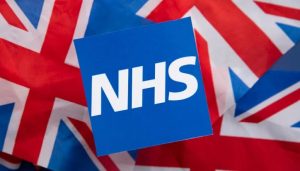NHS Pay Rise 2024-25: When Will It Be Paid? | Latest Updates & Dates
The NHS is the backbone of the UK’s healthcare system, employing over 1.5 million staff across different pay bands and job roles.
With inflation and cost-of-living pressures rising, NHS employees have been keenly awaiting details on the NHS pay rise for 2024-25.
The increase applies to all NHS staff under the Agenda for Change (AfC) system, which covers most non-medical NHS employees, including nurses, paramedics, and healthcare assistants.
This article provides a detailed breakdown of who qualifies, how much employees will receive, and the broader implications for NHS workers.
What Is the NHS Pay?

The NHS pay refers to the salaries and wages received by employees working within the National Health Service (NHS) in the UK. NHS staff are paid based on structured pay scales, which vary according to job roles, experience levels, and responsibilities.
The Agenda for Change (AfC) pay system is the most widely used pay structure in the NHS, covering over 1.5 million staff across England, Scotland, Wales, and Northern Ireland.
How Is NHS Pay Structured?
NHS pay is divided into bands, with different salaries assigned to each level. The AfC system consists of nine pay bands, where employees progress through incremental pay rises as they gain more experience.
Key Features of NHS Pay
- Band-Based Pay System: Employees are placed in one of nine pay bands, with starting salaries increasing as they gain experience.
- Annual Pay Increases: Staff receive incremental pay progression within their band.
- Cost-of-Living Adjustments: Annual salary reviews are conducted by the NHS Pay Review Body (NHS PRB), which recommends wage adjustments.
- Additional Allowances: Some employees receive extra payments for working unsocial hours, night shifts, or in high-cost areas like London.
- Pension and Benefits: NHS employees have access to a comprehensive pension scheme, sick pay, and other benefits.
How Is NHS Pay Decided?
NHS pay is set through a combination of government decisions and recommendations from the NHS Pay Review Body (PRB). The PRB considers factors like:
- Economic conditions and inflation
- NHS workforce retention and recruitment
- Government funding for the NHS
Unions, including UNISON, negotiate on behalf of NHS staff to ensure fair wages and working conditions.
Who Is Eligible for the NHS Salary Increase?
The NHS salary increase for 2024-25 applies to most NHS employees under the Agenda for Change (AfC) pay system.
This system covers over 1.5 million NHS staff in England, Scotland, Wales, and Northern Ireland. The UK government has approved a 5.5% pay rise, backdated to 1 April 2024, with payments expected in October 2024.
Who Qualifies for the NHS Pay Rise?
The 2024-25 NHS pay increase applies to:
- All NHS staff covered by the Agenda for Change (AfC) pay system
- Healthcare professionals, including nurses, midwives, paramedics, and therapists
- Administrative and clerical workers, such as medical secretaries and receptionists
- Technical and scientific staff, including laboratory workers and radiographers
- Support staff, such as porters, cleaners, and catering assistants
- Ambulance service employees, including emergency call handlers and paramedics
Who Is NOT Eligible for the NHS Pay Rise?
The following groups are not automatically included in the pay rise:
- Doctors and dentists, who have separate pay negotiations.
- Senior managers and executives on individual pay contracts.
- GP practice staff, unless their employer chooses to match the increase.
- Privately employed NHS contractors, such as outsourced healthcare workers and agency staff.
How Much Will NHS Staff Receive in 2024-25?

The 5.5% pay increase applies across all Agenda for Change pay bands, affecting over a million NHS employees.
Breakdown of Expected Pay Changes
- Band 2 (Healthcare Assistants, Support Staff): A flat rate increase ensuring fair wages for entry-level positions.
- Band 5 (Newly Qualified Nurses, Allied Health Professionals): A modest uplift aimed at retaining early-career professionals.
- Band 6 & 7 (Senior Nurses, Team Leaders): Incremental adjustments with an emphasis on experience-based progression.
- Band 8 & 9 (Specialists, Consultants, Senior Management): Pay structure reviews are being considered to address disparities.
Despite the increase, concerns remain about pay band progression. Some NHS employees argue that pay gaps between bands remain insufficient, failing to incentivise career advancement.
When NHS Pay Rise 2024-25 Will Be Paid?
The NHS pay rise for 2024-25 has been a widely discussed topic among healthcare professionals, with many NHS staff eager to know when they will receive their updated salaries and backdated payments.
The UK government has accepted the NHS Pay Review Body (NHS PRB) recommendation of a 5.5% pay increase, which applies to Agenda for Change (AfC) employees across different pay bands.
While the pay increase officially applies from 1 April, NHS staff will have to wait until October 2024 to see the changes reflected in their salaries.
This delay is primarily due to administrative processes, payroll adjustments, and funding allocations required to implement the new pay structure effectively.
Payment Timeline
- 1 April 2024 – The pay rise is officially backdated.
- October 2024 – NHS staff will receive their adjusted salary along with backdated payments.
The backdated payment ensures that NHS employees do not lose out on earnings from the months between April and October 2024. Employees should check their October 2024 payslips to ensure their salary increase and backdated payments are correctly applied.
Although the NHS pay rise provides some financial relief, delays in implementation continue to be a concern among NHS workers. Unions like UNISON and other healthcare bodies have been advocating for timelier payment processing in future pay reviews.
Will the NHS Pay Rise Include a Lump Sum Payment?

Yes, the 2024-25 NHS pay deal includes a one-off lump sum payment for certain employees under the Agenda for Change (AfC) system.
This additional payment is separate from the 5.5% salary increase and aims to provide extra financial support to NHS workers.
Details on Lump Sum Payments
- The lump sum will be paid alongside the October 2024 salary adjustment.
- It will be distributed in instalments for eligible employees.
- The exact amount will vary depending on pay band and length of service.
The lump sum payment is intended to help ease financial pressures faced by NHS workers, particularly given the rising cost of living. However, it is important to note that not all NHS employees will receive the lump sum, as eligibility criteria apply.
Further details on lump sum payments will be confirmed by NHS Employers closer to the payment date in October 2024.
How Does the 2024-25 NHS Pay Increase Compare to Previous Years?
The 5.5% pay rise for 2024-25 is an improvement over some previous years, but many NHS employees argue that it still falls short of meeting inflation rates and cost-of-living demands.
Comparison of NHS Pay Rises Over Recent Years
| Year | Pay Increase | Additional Notes |
| 2022 | 4% | Below inflation, leading to worker dissatisfaction and strikes. |
| 2023 | 5% + Lump Sum | Included a one-off bonus, but still faced criticism. |
| 2024 | 5.5% | Backdated to April 2024, payable in October 2024. |
While the 2024-25 pay rise is higher than previous years, many NHS workers, particularly those in lower pay bands, argue that wage increases have not kept pace with inflation.
This has led to concerns over recruitment, staff retention, and overall morale within the NHS workforce.
Trade unions, such as UNISON, continue to lobby for higher pay rises, especially for lower-band employees who struggle to cope with rising living costs.
What Are the Latest Updates from the Government on NHS Pay?

The UK government has positioned the 2024-25 NHS pay rise as a step toward workforce stability. Ministers claim that the 5.5% salary increase will help address staff shortages, improve retention rates, and support NHS workers amid financial challenges.
However, unions such as UNISON and the Royal College of Nursing (RCN) have raised concerns that the current system for determining NHS pay is outdated and ineffective.
They are advocating for direct negotiations with the government instead of relying on the NHS Pay Review Body (NHS PRB), which they argue lacks true independence.
The government remains firm in its stance that the pay rise is fair and financially sustainable, but further discussions between unions and policymakers are expected in the coming months.
How Will the NHS Pay Rise Impact Different Pay Bands?
The 5.5% increase applies across all Agenda for Change (AfC) pay bands, but some groups have raised concerns about career progression and wage gaps between bands.
Key Issues Raised by NHS Workers
- Band 2 (Support Workers): No incremental increase despite gaining experience.
- Band 3 (Healthcare Assistants): Minimal pay difference from Band 2, reducing the incentive to take on more responsibilities.
- Bands 5-6 (New Nurses, Clinicians): Lack of meaningful pay progression, making it difficult to retain skilled workers.
- Bands 7-9 (Senior Staff, Specialists): Long waiting periods before reaching the top of their band, causing frustration.
Unions continue to push for structured pay progression, particularly for lower and mid-level bands, to retain skilled professionals and incentivise career growth.
What Do Unions and Healthcare Organisations Say About the Pay Rise?
Unions such as UNISON, the Royal College of Nursing (RCN), and the British Medical Association (BMA) have had mixed reactions to the 2024-25 NHS pay deal.
Union Perspectives
- Concerns over low-band pay gaps: Many lower-band workers feel the increase is not enough to cover living costs.
- Push for direct negotiations with the government: Unions want to move away from the NHS Pay Review Body (NHS PRB), arguing it lacks independence.
- Campaigning for a shorter working week: Unions advocate for reducing NHS working hours without salary reductions to improve staff well-being.
While the pay rise has been accepted, there is continued dissatisfaction among some NHS workers, with unions demanding further pay reviews and structural reforms.
Will There Be Any Further NHS Pay Adjustments in 2025?

As of now, there are no confirmed plans for additional NHS pay adjustments in 2025. However, unions and healthcare organisations are pushing for further pay reviews, particularly for lower-band employees and newly qualified staff.
The NHS Pay Review Body (PRB) will continue to assess economic conditions, inflation, and workforce shortages before making recommendations for future pay adjustments.
Many NHS workers hope that future negotiations will result in higher pay rises and better career progression opportunities.
What Are the Pros and Cons of Rising NHS Pay?
While the NHS pay rise is seen as a positive step, it also raises several challenges.
Pros
- Helps retain experienced NHS staff.
- Provides financial relief amid rising inflation.
- Improves morale and job satisfaction.
- Encourages new healthcare professionals to join the NHS.
Cons
- Does not fully match inflation, leading to ongoing financial strain for workers.
- Pay gaps between bands remain an issue, discouraging career progression.
- Government budget constraints may impact future pay increases.
- Some NHS staff (such as private contractors and outsourced workers) are not included.
The debate over NHS pay fairness and long-term funding is likely to continue in the coming years.
Conclusion
The NHS pay rise for 2024-25 provides a 5.5% salary uplift, backdated to 1 April 2024, and payable in October 2024.
While the increase offers some financial relief, it does not fully address wage gaps, retention issues, and career progression challenges.
Unions continue to advocate for better pay structures, improved working conditions, and direct negotiations with the government.
As the NHS faces ongoing staffing shortages and rising patient demand, ensuring fair and competitive wages will remain a key priority for healthcare professionals and policymakers alike.
FAQs
How is NHS pay decided?
NHS pay is determined by the NHS Pay Review Body (PRB) based on input from unions, employers, and the government.
What is Agenda for Change?
Agenda for Change is the national NHS pay system covering most non-medical NHS staff.
Will NHS bank staff receive the pay rise?
It depends on their contract type and employer policies.
Will private sector NHS workers get the increase?
Only if their employer adopts the NHS pay deal.
Will the pay rise affect pension contributions?
Yes, as the increased salary will reflect in pension deductions.







